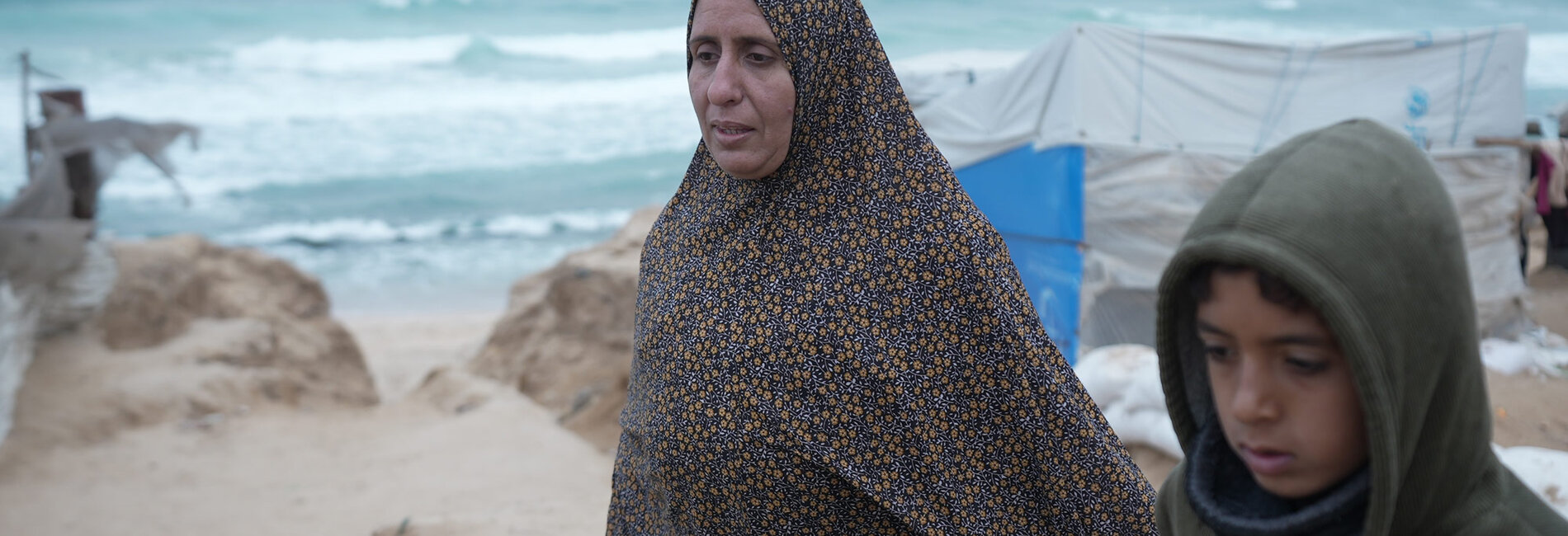From Displacement to Hope: Sabrina's Struggle for Survival Amid War
Sabrina, a mother of seven from Beit Lahiya, Gaza, faced relentless displacement due to the war in Gaza. “We left with nothing but the clothes on our backs,” she recalled, believing they would return home within days. Instead, she and her family were forced to move repeatedly, first to Jabalya refugee camp, then to Khan Younis, and later to Rafah. In May 2024, when the Israeli military operation expanded to Rafah governorate, Sabrina and her family fled again, seeking refuge in a makeshift tent on Deir Al Balah’s beach. “Life in a tent is tragic and difficult,” Sabrina said.
Living in a tent by the beach, Sabrina and her family endured harsh conditions: burning heat during the day and cold winds at night. Clean water, food and sanitation were difficult to access, making survival a daily challenge. Recalling some low-quality water she could fetch, Sabrina said “it was polluted and had a strange, thick taste, like boiling jelly.” The contaminated water led to widespread illness affecting the whole family, with diarrhea and skin infections.
“It broke my heart to see my children suffer,” Sabrina said. “Their skin is so irritated and painful, and I can’t do anything to help them.” Desperate for relief, her children would walk long distances, sometimes over a kilometre, just to fetch water. Often, they had to buy it, but at 40 to 50 new Israeli shekels (11-US$14) per container, it was a luxury they could rarely afford.
With support from the oPt Humanitarian Fund (HF), in October 2024, Oxfam in partnership with Palestinian Environmental Friends (PEF), a local organization, provided clean water to some 6,000 internally displaced people in four makeshift tent camps. Access to clean water became more consistent, and hygiene supplies started arriving. “We felt a glimmer of hope,” she said, “as if the clouds were finally parting.”
As the winter rain poured down, their makeshift tents flooded, turning the sandy ground into a pool of mud. Flooding threatened to wash away the little stability they had managed to find, and Sabrina watched helplessly as water pooled around their shelter. In response, Oxfam and PEF, provided sandbags to create barriers around the tents, redirecting the water and preventing further damage. “It was a great idea, it was a great help,” Sabrina said, her voice tinged with gratitude. “With the sandbags in place, we could breathe a little easier. They also helped us manage the solid waste, which had been piling up and adding to our worries”.
As the war continued, diseases long absent from Gaza began to reemerge. Sabrina feared the resurgence of illnesses like polio. “I did not know what it was, what its symptoms were, or what the side effects of a vaccine might be.” Fortunately, through the project, she was also offered hygiene awareness sessions that covered essential topics, including polio, menstrual hygiene management, and managing solid waste in time of crises. “I felt relieved. At least I know these things and how to manage them; I started to share this knowledge with my family and daughters,” she said.
Sabrina remains hopeful. "I am looking forward to any permanent ceasefire. I am super tired of displacement and war."










